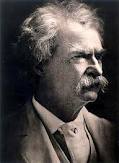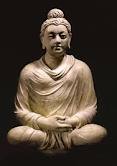










Atheistic Paganist It is precisely because of a love for nature that a person can identify as a Pagan and an atheist with absolutely no contradiction whatsoever. The Pagan atheist views nature itself as the magnificent framework of which we all are a part - and has no need to put a human face on it. To do so is to look at it through a clouded lens, rather than taking it at its own marvelous face value. "I do not know of any compelling evidence for anthropomorphic patriarchs controlling human destiny from some hidden celestial vantage point," Carl Sagan once remarked, "but it would be madness to deny the existence of physical laws."
Source
Confucianist
Deist
Ethical Culturist Ethical Societies take no position on the existence of God. Many members describe themselves as agnostic. However, if by theism one means a Man-God in the sky or an external power who will intercede with special favors, very few members would be theists. While many members appreciate the importance of experiencing oneself as part of something greater, most consider the question of the existence or non-existence of God as being of lesser importance than treating human beings with respect, kindness, and fairness.
Freethinker
Ignosticist Ignosticism is the idea that the question of the existence of God is meaningless, because the term "god" has no unambiguous definition. Ignosticism requires a good, non-controversial definition of god before arguing on its existence.
Naturalistic Pantheist Naturalistic pantheism is a phrase referring to a kind of pantheism, and has been used in various ways. It has been used to identify God or divinity with concrete things, determinism, or the substance of the Universe. God, from these perspectives, is seen as the aggregate of all unified natural phenomena.
Objectivist
Rationalist
Secular Humanist Secular humanism is a comprehensive, nonreligious lifestance incorporating: A naturalistic philosophy. A cosmic outlook rooted in science. A consequentialist ethical system.
Strong Agnostic
Strong Atheist
Taoist
Theravada Buddhist
Transhumanist Transhumanism (abbreviated as H+ or h+) is an international and intellectual movement that aims to transform the human condition by developing and creating widely available sophisticated technologies to greatly enhance human intellectual, physical, and psychological capacities.
Unitarian Universalist
Weak Agnostic
Implicit Atheist Weak atheism, also sometimes referred to as implicit atheism, is simply another name for the broadest and most general conception of atheism: the absence of belief in any gods. A weak atheist is someone who lacks theism and who does not happen to believe in the existence of any gods ? no more, no less. This is also sometimes called agnostic atheism because most people who self-consciously lack belief in gods tend to do so for agnostic reasons.
Other nontheistic philosophies A system of ethics, founded on the teachings of Confucius, that influenced the traditional culture of China. Confucianism places a high value on learning and stresses family relationships. On a functional level, at least, both Confucianism and Taoism can be considered atheistic. Neither is founded on faith in a creator god like Christianity and Islam are. Neither promote the existence of such a god, either. Confucian texts describe a "Heaven" which is a transcendent, personal power of some sort. Whether this qualifies as a personal deity or not is a subject of debate, but it seems at least possible for a person to follow Confucian teachings and be an atheist.
Source
A system of ethics, founded on the teachings of Confucius, that influenced the traditional culture of China. Confucianism places a high value on learning and stresses family relationships. On a functional level, at least, both Confucianism and Taoism can be considered atheistic. Neither is founded on faith in a creator god like Christianity and Islam are. Neither promote the existence of such a god, either. Confucian texts describe a "Heaven" which is a transcendent, personal power of some sort. Whether this qualifies as a personal deity or not is a subject of debate, but it seems at least possible for a person to follow Confucian teachings and be an atheist.
Source
Other nontheistic philosophies 1. A belief in the existence of a God on the evidence of reason and nature only, with rejection of supernatural revelation (distinguished from theism ). 2. A belief in a God who created the world but has since remained indifferent to it.
Thomas Jefferson was always reluctant to reveal his religious beliefs to the public, but at times he would speak to and reflect upon the public dimension of religion. He was raised as an Anglican, but was influenced by English deists such as Bolingbroke and Shaftesbury. Thus in the spirit of the Enlightenment, he made the following recommendation to his nephew Peter Carr in 1787: "Question with boldness even the existence of a god; because, if there be one, he must more approve the homage of reason, than that of blindfolded fear."
1. A belief in the existence of a God on the evidence of reason and nature only, with rejection of supernatural revelation (distinguished from theism ). 2. A belief in a God who created the world but has since remained indifferent to it.
Thomas Jefferson was always reluctant to reveal his religious beliefs to the public, but at times he would speak to and reflect upon the public dimension of religion. He was raised as an Anglican, but was influenced by English deists such as Bolingbroke and Shaftesbury. Thus in the spirit of the Enlightenment, he made the following recommendation to his nephew Peter Carr in 1787: "Question with boldness even the existence of a god; because, if there be one, he must more approve the homage of reason, than that of blindfolded fear."
Other nontheistic philosophies
Other nontheistic philosophies A person who rejects accepted opinions, especially those concerning religious belief. John Lennon rejected religious teaching and organised religions. His solo single, "Imagine", has been described as an "atheist anthem".
A person who rejects accepted opinions, especially those concerning religious belief. John Lennon rejected religious teaching and organised religions. His solo single, "Imagine", has been described as an "atheist anthem".
Other nontheistic philosophies
Iconoclast An atheist does not believe in gods, but makes no demands believers to share their non-belief in god(s). An iconoclast seeks to attack and destroy all religion and religious beliefs.
Other nontheistic philosophies
Other nontheistic philosophies
Other nontheistic philosophies Objectivism's central tenets are that reality exists independently of consciousness, that human beings have direct contact with reality through sense perception, that one can attain objective knowledge from perception through the process of concept formation and inductive logic, that the proper moral purpose of one's life is the pursuit of one's own happiness (rational self-interest), that the only social system consistent with this morality is one that displays full respect for individual rights embodied in laissez-faire capitalism, and that the role of art in human life is to transform humans' metaphysical ideas by selective reproduction of reality into a physical form-a work of art-that one can comprehend and to which one can respond emotionally.
Objectivism's central tenets are that reality exists independently of consciousness, that human beings have direct contact with reality through sense perception, that one can attain objective knowledge from perception through the process of concept formation and inductive logic, that the proper moral purpose of one's life is the pursuit of one's own happiness (rational self-interest), that the only social system consistent with this morality is one that displays full respect for individual rights embodied in laissez-faire capitalism, and that the role of art in human life is to transform humans' metaphysical ideas by selective reproduction of reality into a physical form-a work of art-that one can comprehend and to which one can respond emotionally.
Other nontheistic philosophies The belief or theory that opinions and actions should be based on reason and knowledge rather than on religious belief or emotional response.
To the rationalists Immanuel Kant argued, broadly, that pure reason is flawed when it goes beyond its limits and claims to know those things that are necessarily beyond the realm of all possible experience: the existence of God, free will, and the immortality of the human soul. Kant referred to these objects as "The Thing in Itself" and goes on to argue that their status as objects beyond all possible experience by definition means we cannot know them.
The belief or theory that opinions and actions should be based on reason and knowledge rather than on religious belief or emotional response.
To the rationalists Immanuel Kant argued, broadly, that pure reason is flawed when it goes beyond its limits and claims to know those things that are necessarily beyond the realm of all possible experience: the existence of God, free will, and the immortality of the human soul. Kant referred to these objects as "The Thing in Itself" and goes on to argue that their status as objects beyond all possible experience by definition means we cannot know them.
Other nontheistic philosophies
Other nontheistic philosophies If someone is a strong agnostic, they don't merely claim that they don't know if any gods exist; instead, they also claim that no one can or does know if any gods exist. Whereas weak agnosticism is a position that only describes the state of knowledge of one person, strong agnosticism makes a statement about knowledge and reality themselves.
"The Bible has noble poetry in it... and some good morals and a wealth of obscenity, and upwards of a thousand lies." - Mark Twain
If someone is a strong agnostic, they don't merely claim that they don't know if any gods exist; instead, they also claim that no one can or does know if any gods exist. Whereas weak agnosticism is a position that only describes the state of knowledge of one person, strong agnosticism makes a statement about knowledge and reality themselves.
"The Bible has noble poetry in it... and some good morals and a wealth of obscenity, and upwards of a thousand lies." - Mark Twain
Other nontheistic philosophies Strong atheism, also sometimes referred to as explicit atheism, goes one step further and involves denying the existence of at least one god, usually multiple gods, and sometimes the possible existence of any gods at all.
Richard Branson is an atheist who says he would be delighted if someone could convince him that God exists.1 I'm sure some of you would love to take up the challenge, but it might be a hard sell.
He says he thinks "religion has done a lot of harm over the years," and that evolution and science are at direct odds with religion.
Strong atheism, also sometimes referred to as explicit atheism, goes one step further and involves denying the existence of at least one god, usually multiple gods, and sometimes the possible existence of any gods at all.
Richard Branson is an atheist who says he would be delighted if someone could convince him that God exists.1 I'm sure some of you would love to take up the challenge, but it might be a hard sell.
He says he thinks "religion has done a lot of harm over the years," and that evolution and science are at direct odds with religion.
Other nontheistic philosophies "I have studied Taosim and in a technical sense it is possible to be both a taoist and and atheist. In taoism there is no God. There is only the Tao. Still it seems as if the Tao is takeing the place of a God, emotionaly at least. It also seems to be on the same level, epistemicly speaking, as God. So it seems strange for me that one person would deny the existence of God and affirm the existence of the Tao. Toaism states that everything in the world is believed to be a manifestation of the Tao and are restricted, in a sense, by the Tao. In the Tao de Ching, the main text of Taoists, the tao is described as being indescribable (doesn't that sound familiar to something other theists say about their God?)."
Source
"I have studied Taosim and in a technical sense it is possible to be both a taoist and and atheist. In taoism there is no God. There is only the Tao. Still it seems as if the Tao is takeing the place of a God, emotionaly at least. It also seems to be on the same level, epistemicly speaking, as God. So it seems strange for me that one person would deny the existence of God and affirm the existence of the Tao. Toaism states that everything in the world is believed to be a manifestation of the Tao and are restricted, in a sense, by the Tao. In the Tao de Ching, the main text of Taoists, the tao is described as being indescribable (doesn't that sound familiar to something other theists say about their God?)."
Source
Other nontheistic philosophies Theravada is the oldest form of Buddhism. Theravada means the "doctrine of the elders"
"Buddhism is not about either believing or not believing in God or gods. Rather, the historical Buddha taught that believing in gods was not useful for those seeking to realize enlightenment. In other words, God is unnecessary in Buddhism. For this reason, Buddhism is more accurately called nontheistic than atheistic."
Source
"Gautama Buddha rejected the existence of a creator deity, refused to endorse many views on creation, and stated that questions on the origin of the world are not ultimately useful for ending suffering."
Source
Theravada is the oldest form of Buddhism. Theravada means the "doctrine of the elders"
"Buddhism is not about either believing or not believing in God or gods. Rather, the historical Buddha taught that believing in gods was not useful for those seeking to realize enlightenment. In other words, God is unnecessary in Buddhism. For this reason, Buddhism is more accurately called nontheistic than atheistic."
Source
"Gautama Buddha rejected the existence of a creator deity, refused to endorse many views on creation, and stated that questions on the origin of the world are not ultimately useful for ending suffering."
Source
Other nontheistic philosophies
Other nontheistic philosophies Unitarian Universalists accept the divergent views of believers and non-believers. "People with atheist and agnostic beliefs find a supportive community in our congregations. We are pro-science, pro-reason, and pro-Evolution. We know there is no 'one right answer' when it comes to belief, and we don't let that stop us from taking action for a better world. We build a community that welcomes us in our wholeness, cherishes our doubts, and invites our ongoing search for truth." Source
Unitarian Universalists accept the divergent views of believers and non-believers. "People with atheist and agnostic beliefs find a supportive community in our congregations. We are pro-science, pro-reason, and pro-Evolution. We know there is no 'one right answer' when it comes to belief, and we don't let that stop us from taking action for a better world. We build a community that welcomes us in our wholeness, cherishes our doubts, and invites our ongoing search for truth." Source
Other nontheistic philosophies If someone is a weak agnostic, they state only that they do not know if any gods exist or not (ignoring the question of whether it's possible to know something but not consciously realize it). The possibility of some theoretical god or some specific god existing is not excluded. The possibility of someone else knowing for sure if some god exists or not is also not excluded. This is a very simple and general position and it is what people often think of when they think of agnosticism and is commonly found alongside atheism.
If someone is a weak agnostic, they state only that they do not know if any gods exist or not (ignoring the question of whether it's possible to know something but not consciously realize it). The possibility of some theoretical god or some specific god existing is not excluded. The possibility of someone else knowing for sure if some god exists or not is also not excluded. This is a very simple and general position and it is what people often think of when they think of agnosticism and is commonly found alongside atheism.
Other nontheistic philosophies
Other nontheistic philosophies